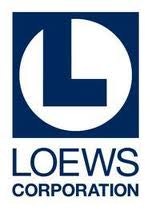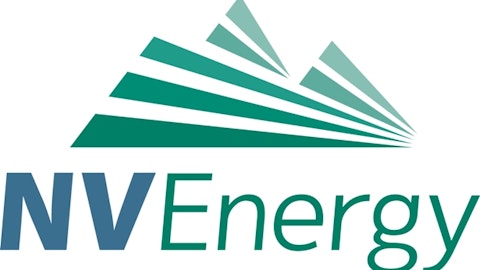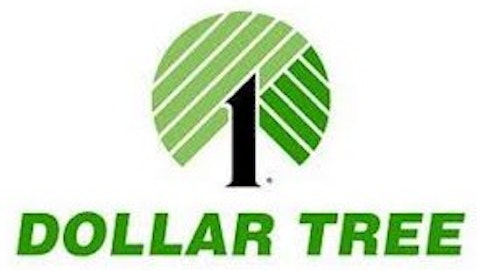Short-sellers have certainly huffed and puffed, but they haven’t been able to blow the S&P 500 (INDEXSP:.INX) over once in the past seven months. In fact, through the end of May, the S&P 500 (INDEXSP:.INX) is up 14.3% year to date.
Leading this broad-based index higher has been a combination of lower unemployment rates, steady growth in the manufacturing sector, and a stabilizing housing sector that has led to higher home prices and lower inventories.
But even with most economic data pointing to a slow but sustained rally, pessimists have been positioning themselves for what they suspect is an inevitable downturn in the market. After looking at the S&P 500 (INDEXSP:.INX)’s most hated stocks yesterday, I propose we turn the tables and examine the five S&P 500 (INDEXSP:.INX) companies that pessimists won’t come within 10 feet of — the so-called “most loved” S&P 500 companies — and figure out what traits they possess that keep short-sellers at bay.
| Company | Short Interest as a % of Shares Outstanding |
|---|---|
| Berkshire Hathaway | 0% |
| Loews | 0.53% |
| Marsh & McLennan (NYSE:MMC) | 0.58% |
| Chubb (NYSE:CB) | 0.61% |
| Hudson City Bancorp (NASDAQ:HCBK) | 0.63% |
Source: S&P Capital IQ.
- If you’re an investor, you know the name Warren Buffett and likely know better than to bet against his well-diversified company. With 57 businesses across myriad sectors under Berkshire Hathaway Inc. (NYSE:BRK.A)’s ownership, there’s little impetus to bet against the stock. Just last week the company announced a deal to acquire NV Energy, Inc. (NYSE:NVE) for $5.6 billion in order to allow its MidAmerican Energy unit to assist NV Energy, Inc. (NYSE:NVE) in expanding its alternative energy offerings in Nevada.
Do investors have a reason to worry?
- As has been the answer for the past couple of months: not really. What you give up with Berkshire in terms of rapid growth rate you’ll gain in the assurance that it’ll often outperform the S&P 500 (INDEXSP:.INX) in a down market. Berkshire’s diversity is second to none and borders on owning a highly liquid mutual fund. So long as Warren Buffett is at the helm of Berkshire Hathaway Inc. (NYSE:BRK.A), I doubt investors have much to be concerned about.
Why are short-sellers avoiding Loews?
- The reason short-sellers are keeping their distance from Loews Corporation (NYSE:L) is the same reason they are hesitant to bet against the entire insurance sector: It’s a crapshoot. There isn’t any rhyme or reason as to when a natural disaster will occur, so placing a bet against insurers is merely a bet on having lucky timing. Insurers are able to justify bumping their premiums higher if catastrophe losses shoot up, always leaving them with the ability to turn a profit.
Do investors have a reason to worry?
- There is a chance that a vicious tornado and hurricane season could impact Loews’ bottom line just as Superstorm Sandy crippled earnings in its most recent quarter. Then again, it gives Loews Corporation (NYSE:L) all the more reason to raise premiums with reasonable justification and ensure that it remains healthfully profitable. Needless to say, I can think of plenty of better shorting opportunities than Loews.
Why are short-sellers avoiding Marsh & McLennan?
- Marsh & McLennan Companies, Inc. (NYSE:MMC) is a global risk and strategy advisor whose business is dependent on the overall economy. Simply put, if the market is heading higher, then Marsh & McLennan’s strategic advice will remain in high demand. Operating income for the company has been on a steady incline since 2008 and hasn’t shown any signs of slowing.
Do investors have a reason to worry?
- If Marsh & McLennan Companies, Inc. (NYSE:MMC)’s past four years are any indication, then probably not. Unless economic data in the U.S. takes a serious downturn, the company’s strategic advice is going to propel its revenue higher. At 15 times forward earnings, it’s not exactly cheap anymore, but it also isn’t at the point where it makes sense to bet against the company, especially with a recently upped 2.5% yield.
Why are short-sellers avoiding Chubb?
- Just like we saw with Loews, The Chubb Corporation (NYSE:CB) is a commercial and personal property and casualty insurer that has the ability to boost its premiums on an as-needed basis. Catastrophe losses, like those witnessed with Superstorm Sandy, gave insurers plenty of reason to hike rates and set themselves up for big gains in the future. Insurers will always encounter extraordinary hiccups, but they are cash flow machines when all is said and done.
Do investors have a reason to worry?
- Unless you have a crystal ball that can predict earthquakes, hurricanes, tornadoes, and other acts of God, then you’re probably safe investing in the insurance sector. The Chubb Corporation (NYSE:CB), for instance, saw its net income increase 36% to $2.48 in its most recent quarter, which is the highest level at any time in the company’s history. Furthermore, its combined ratio (the ratio that tells us how profitable it is to underwrite policies, with anything less than 100% being profitable) fell to 84.6% from 90.2% in 2012, proving my point that insurers can boost rates as needed to stay well in the black.
Why are short-sellers avoiding Hudson City Bancorp?
- This one is pretty much a no-brainer, as Hudson City Bancorp, Inc.(NASDAQ:HCBK) has already agreed to be acquired by
M&T Bank Corporation (NYSE:MTB) in a $3.7 billion deal announced last August. The reason I say it’s “pretty much” and not “absolutely” a no-brainer is that part of the deal will be in M&T Bank Corporation (NYSE:MTB) stock, which could fall between now and the completion of the deal and adversely affect Hudson City Bancorp, Inc.(NASDAQ:HCBK)’s buyout price.
Do investors have a reason to worry?
- While I admit to being disappointed with only a $3.7 billion buyout price, the move makes a lot of sense for both parties involved. M&T Bank will be able to boost its deposits by $25 billion in the blink of an eye and will expand its presence in the Mid-Atlantic region by purchasing Hudson City, while Hudson City shareholders will gain shares in the well-capitalized M&T Bank Corporation (NYSE:MTB), which sticks to basic but highly profitable banking services, including an emphasis on loan and deposit growth. In short, this isn’t a company that makes a lot of sense to bet against.
Do you see big downside potential in any of these five most loved S&P 500 (INDEXSP:.INX) companies? Share your thoughts in the comments section below.
The article The S&P 500’s 5 Most Loved Stocks originally appeared on Fool.com is written by Sean Williams.
Fool contributor Sean Williams has no material interest in any companies mentioned in this article. You can follow him on CAPS under the screen name TMFUltraLong, track every pick he makes under the screen name TrackUltraLong, and check him out on Twitter, where he goes by the handle @TMFUltraLong.The Motley Fool owns shares of, and recommends, Berkshire Hathaway and Loews.
Copyright © 1995 – 2013 The Motley Fool, LLC. All rights reserved. The Motley Fool has a disclosure policy.





